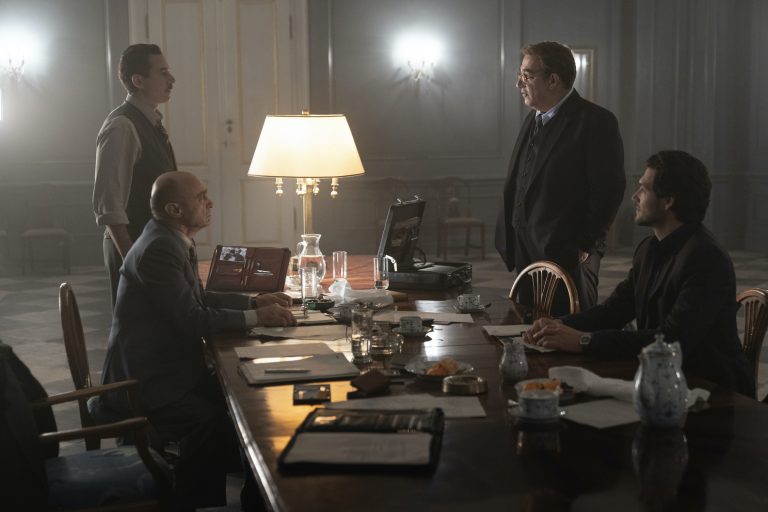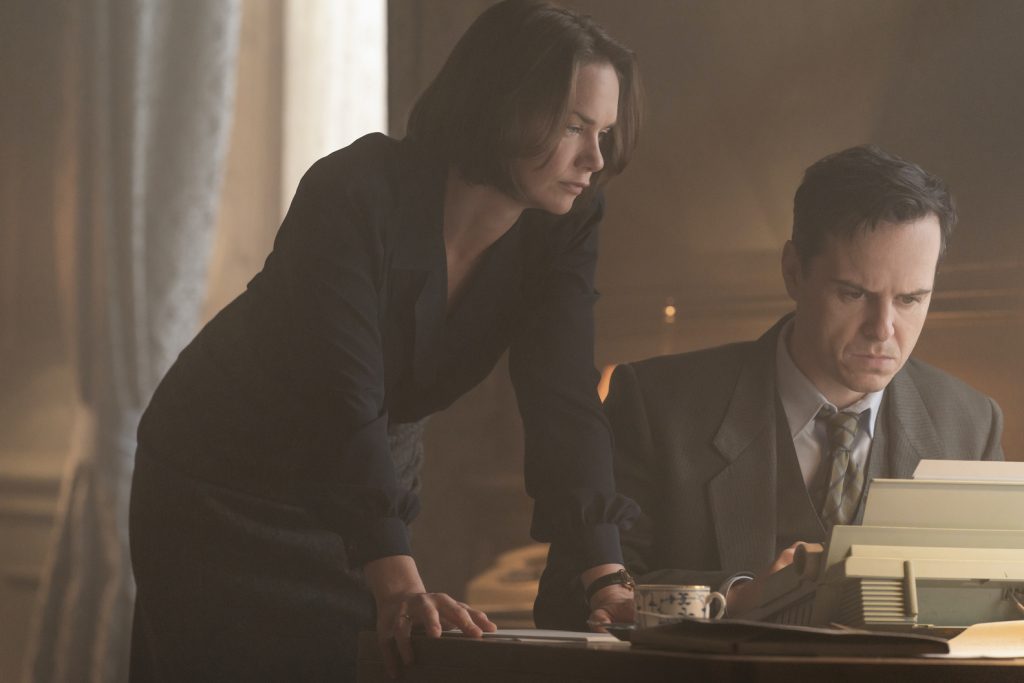
Peace is not an easy concept. It’s the kind of thing that people don’t necessarily appreciate when it already exists but are quick to notice and miss when it’s no longer there. Achieving it typically involves compromises and concessions, and it may be an arduous process that involves many false starts.
It also won’t please all parties, as those negotiating an agreement are meant to represent the masses but can’t possibly speak for everyone. Since the founding of the State of Israel in 1948 and long before then, the Middle East has been a site and subject of tremendous conflict, including recent violence that makes this dramatization of events nearly three decades ago feel increasingly relevant.
Oslo is based on the 2016 play of the same name that follows the top-secret process orchestrated in the early 1990s by a pair of married Norwegians, diplomat Mona Juul (Ruth Wilson) and sociologist Terje Rød-Larsen (Andrew Scott), to convene a group of Palestinians and Israelis to hash out their differences and construct a working document to be presented to their nations’ leaders. Two representatives of the Palestine Liberation Organization and two Israeli professors meet to determine what is most important to their peoples, setting the stage for a historic cooperation that, if successful, could lead to an unprecedented future for the region.
But, of course, history cannot be ignored when watching this film. Much of what is said by all parties remains true today, after a second Intifada began in 2000 and numerous wars have occurred since then. Those primary disagreements have not been resolved, and they remain sticking points in any new attempts at peace that are often rejected by both sides as insincere and unlikely to work given the tendency of such efforts to ultimately collapse. Anyone who has been watching or reading the news about rockets launched by Hamas from Gaza and the death toll incurred as a result of Israel’s response will surely be disappointed that none of this is new and hasn’t been somehow solved in so many years of international work.
Where there is hope comes from the relationships that form over the course of the film, symbolic of the way in which those who are sworn enemies can certainly find some common ground if they spend enough time together. Those moments do not come easily, but watching the softening of even the most staunchly combative and militant participants of these negotiations is enormously compelling. The respect they slowly find for each other is also affirming, and indicative of the potential that can be found for a mutual recognition of humanity and a right to exist.

Casting is also key to this film’s effectiveness. Wilson and Scott are recognizable actors who appeared recently in His Dark Materials in addition to other award-winning work on The Affair and Fleabag, respectively. Their functions here are similar to their characters’, neutral parties designed to bring together the far more important players. Utilizing actors who either are Palestinian or Israeli or have heritage with either group adds a degree of realism to the experience, including the awkwardness of having to converse in a mutually known second language – English. Salim Dau and Waleed Zuaiter are particularly vibrant as PLO representatives, and Jeff Wilbusch’s portrayal of an Israeli politician is a fine follow-up to his breakthrough role in Unorthodox.
This film’s perspective is that of the outside observer, focusing on two Norwegians actively working against official orders from their government to do something they see as achievable.
In a sense, it’s a fitting vantage point given how the Israeli-Palestinian conflict is viewed and digested by so many around the world who can’t possibly understand the intricacies and histories of actually being part of it. At the same time, it feels somewhat disingenuous for the people charged with carving out a solution to be the supporting cast in their own story. But this isn’t meant to be a catch-all narrative of years of unrest, merely a intriguing and certainly thought-provoking snapshot of one of the most unexpectedly optimistic moments where a real breakthrough peace seemed possible.
Grade: B
Oslo premieres on Saturday, May 29th at 8pm on HBO and will also be available to stream on HBO Max.

